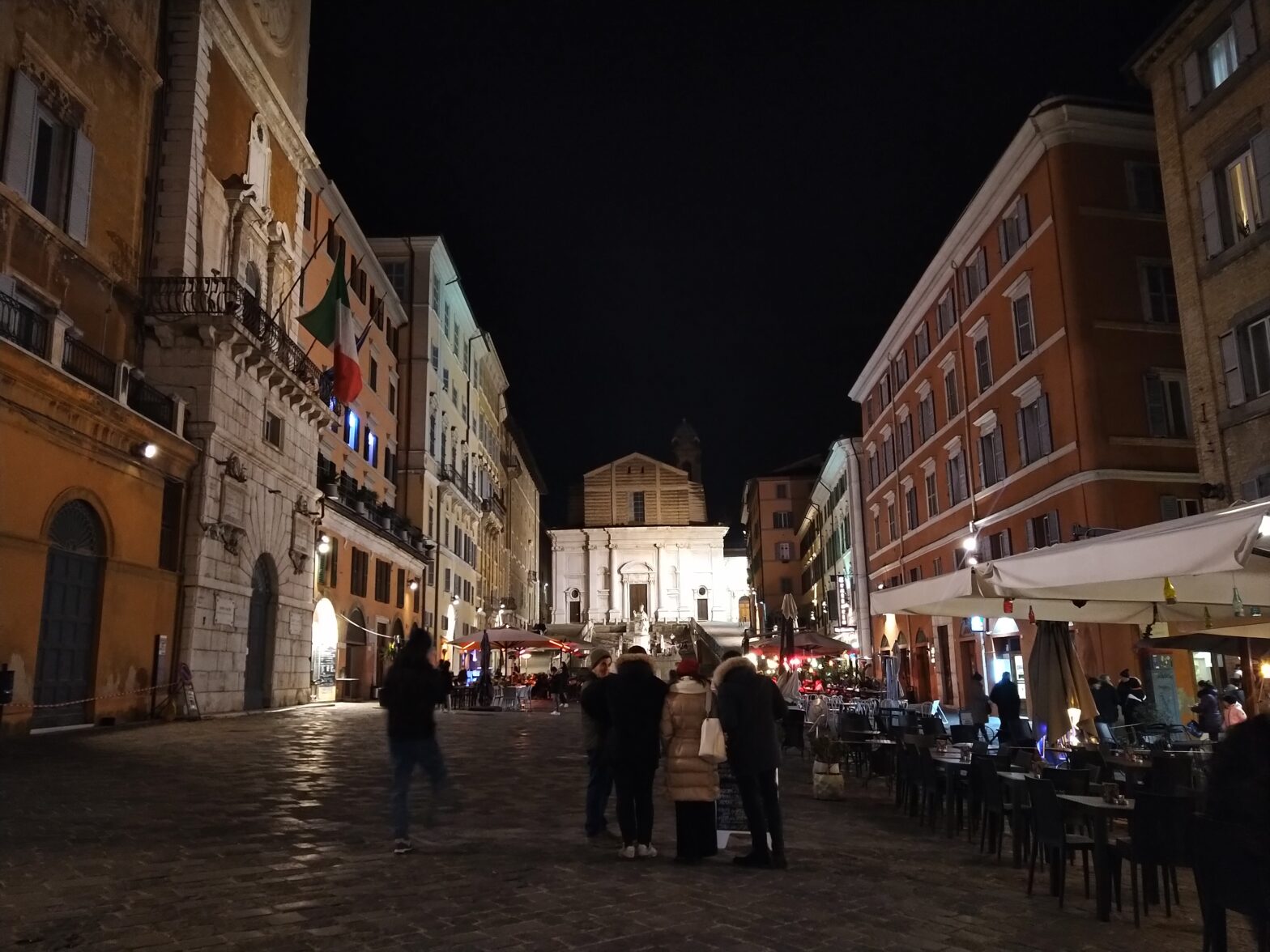“You can just take anything you like,” the receptionist in the hotel had told me. “No extra charges. We want you to feel free and comfortable.” He had said it with passionate conviction, clearly taking pride in his hospitality. So once I had admired the view and tested the bed, I made myself a nice tea, took some water from the fridge and rested a bit before setting out to explore Ancona.
I asked my happy receptionist for restaurants to eat. Simple and hearty food, I asked him. He suggested me a trattoria specialized in seafood. I walked past, closed. Behind the ironwork of the door was a little paper note with a telephone number written on it for reservations. Yes, they did still have room for one person more. Boy, was I lucky.
I walked a bit around the city centre. In one of the main shopping streets, I had a nice discussion with a vegan activist showing footage of stock-breeding practices. I told her I was okay with an animal, treated with respect, dying for my food. It took the piss out of her. I agreed to disagree, she agreed to be angry. Great fun.
Then I passed by something what looked like an art shop, or maybe it was antiques. I walked in. It turned out to be quite a special place. The front half felt like an old wine cellar, dimly lit, arches, walls painted in old reds and browns and the portrait of a lady. It had some old furniture, art, ceramics, special chocolate. In the back, there was a bookshop. The light there was bright and behind the counter stood a lovely lady who, I later learned, was called Giulia. She was talking to her customers, as if they were friends visiting.
Behind her, I spotted a comics book about a Dutchman, something to do with stockfish, stoccafisso. I asked her after the story and she told me about the stockfish, the Dutchman and their relationship to Ancona. She told me about the bookshop, that it was not just a bookshop, but also a bit of a meeting place. In the meantime, teenagers came to pick up books they had ordered for school, while other people were trying to find something on the shelves they weren’t really looking for. Beppe passed by, an older man who clearly knew Giulia quite well. They were chatting away happily, exchanging smiles and hands on arms.
Giulia was curious after my travels, so I told her how happy my arrival had been in Ancona after the stress of the unknown on the boat. I told her about the fancy hotel I was staying, about the trattoria I was going to eat later that night, that I felt like a princess, so fancy, so well cared for. I told her everything and she smiled at me her warmest smiles. “You are not supposed to be so happy,” she said, laughing at my excitement, suggesting only grumpy businessmen and uptight ladies would sleep in hotels like that. And then she said: “You are so grateful, you will be happy all your days.”
Her words stayed with me, though I doubted them at first. I was excited about travelling, the new cultures and people I was meeting, the world being my oyster. And yet, I felt afraid most of my days, worried about where to stay next, which people to trust, about getting lost. Later, I realized she had been right. To feel that kind of happiness, that kind of gratitude that I had felt that day, how warm it had made me feel inside. To feel that every day, even just for a moment, meant I would be happy all my days. I vowed to myself to never forget her words.
I bought a little magnet from her with a cartoon picturing a character from Italian commedia dell’arte joking to Batman. “The designer is an artist from nearby,” she said. And then she said, “I have something for you.” She walked to the front of the shop, took two pieces of the special chocolate I had seen before and gave them to me. “So you will be on your journey in the train,” she said, now making gestures of nibbling chocolate like a squirrel, “and you will think of me.” Days later, when the chocolate was finished, I kept the packaging and wrote her name on it. To never forget.

Leave a Reply